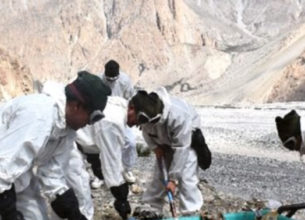Zero-Waste Alliance
28, Dec 2019

Prelims level : Pollution and Waste Management
Mains level : GS-III Conservation, Environmental Pollution and Degradation Environmental Impact Assessment.
Why in News?
- Kerala’s capital city Thiruvananthapuram was recognised and awarded at the International Zero Waste Conference held in Malaysia in October this year.
- Apart from Thiruvananthapuram Chennai is the other Indian city which is considered a Zero Waste city and is part of the International Zero Waste group.
Zero Waste Strategy:
- Zero waste is the conservation of all resources by means of responsible production, consumption, reuse and recovery of products, packaging and materials without burning, and with no discharges to land, water or air that threaten the environment or human health.
- This definition was adopted by the Zero Waste International Alliance in 2002.
- It means designing and managing products and processes to systematically avoid and eliminate the volume and toxicity of waste and materials, conserve and recover all resources, and not burn or bury them.
Zero Waste International Alliance (ZWIA):
- It is a group of environmental professionals dedicated to working towards a world without waste through public education and practical application of Zero Waste principles.
- By disseminating knowledge and providing support to its members ZWIA is promoting the implementation of Zero Waste Principles in Various Aspects.
TMC’s Waste Management:
- The TMC’s waste management plan was not the first of its far-sighted measures to manage waste. It brought in the green protocol for the first time in India to tackle plastic pollution.
- The protocol was first practiced at an international workshop on zero waste in Kovalam in 2000.
- Many institutions have adopted this initiative, including the state legislative assembly complex in the city.
- Thiruvananthapuram, with a population of approximately 0.9 million, is spread over an area of 214.86 square kilometres and is divided into 100 wards.
- The TMC introduced segregated collection of waste to ensure maximum efficiency.
- It Formalised and Institutionalised Source-Level composting and decentralised resource recovery as part of city waste management.
- The entire process of waste management is based on the principle of proximity which ensures the least amount of displacement of waste.
- TMC also organizes periodical collection drives for specific types of non-recyclable discards. The materials will be sent to the authorized recyclers.
- Bulk generators or commercial establishments, meanwhile, are required to take responsibility for their own waste. They include hotels, restaurants, commercial establishments, community halls, and institutions.







